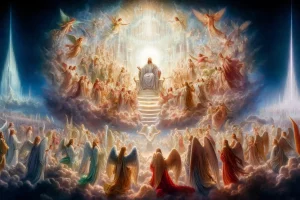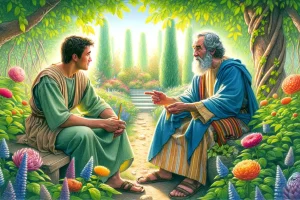
The Book of 2 Peter
The Second Epistle of Peter, commonly referred to as 2 Peter, is a New Testament letter attributed to the Apostle Peter. Here’s a comprehensive analysis of this book:
Authorship and Date:
- Traditionally attributed to the Apostle Peter, though authorship is debated among scholars.
- Likely written in the early to mid-2nd century AD, possibly between 65 and 68 AD.
Audience and Purpose:
- Addressed to a broad audience of Christians, likely those in Asia Minor and other regions.
- The primary purpose is to warn against false teachers and encourage believers to grow in their knowledge of Jesus Christ and to live godly lives.
Themes:
- Warning Against False Teaching: Peter addresses the threat of false teachers who promote heretical doctrines and immoral behavior, emphasizing the importance of discernment and adherence to orthodox Christian teaching.
- Knowledge and Spiritual Growth: Peter encourages believers to grow in their knowledge of Jesus Christ and to pursue spiritual maturity, emphasizing the importance of virtue, knowledge, self-control, perseverance, godliness, brotherly affection, and love.
- The Second Coming of Christ: Peter affirms the certainty of Christ’s return and warns against skepticism and complacency regarding this event, urging believers to live holy and godly lives in anticipation of His coming judgment.
- The Inspiration of Scripture: Peter reaffirms the authority and inspiration of Scripture, emphasizing that the writings of the prophets and apostles are divinely inspired and trustworthy guides for faith and life.
- The Day of Judgment: Peter describes the future judgment of the ungodly and the destruction of the present heavens and earth, emphasizing the need for holy living and preparedness for the coming judgment.
Structure:
- Introduction (1:1-2): Peter introduces himself as the author and addresses the recipients of the letter.
- Exhortation to Spiritual Growth (1:3-11): Peter encourages believers to grow in their knowledge of Christ and to cultivate Christian virtues.
- Eyewitnesses of Christ’s Glory (1:12-21): Peter asserts the reliability of the apostolic testimony regarding Christ’s glory and the prophetic word.
- Warning Against False Teachers (2:1-22): Peter warns against false teachers who promote destructive heresies and immoral behavior, emphasizing their coming judgment.
- The Certainty of Christ’s Return (3:1-10): Peter affirms the certainty of Christ’s return and warns against skepticism and complacency regarding the last days.
- Final Exhortation and Doxology (3:11-18): Peter urges believers to live holy and godly lives in light of Christ’s return and concludes with a doxology praising God’s grace and glory.
Key Verses:
- 2 Peter 1:3-4: “His divine power has granted to us all things that pertain to life and godliness, through the knowledge of him who called us to his own glory and excellence, by which he has granted to us his precious and very great promises, so that through them you may become partakers of the divine nature, having escaped from the corruption that is in the world because of sinful desire.”
- 2 Peter 3:9: “The Lord is not slow to fulfill his promise as some count slowness, but is patient toward you, not wishing that any should perish, but that all should reach repentance.”
- 2 Peter 3:18: “But grow in the grace and knowledge of our Lord and Savior Jesus Christ. To him be the glory both now and to the day of eternity. Amen.”
Significance:
- 2 Peter addresses important theological themes such as false teaching, spiritual growth, the inspiration of Scripture, and the second coming of Christ.
- The letter serves as a warning against false teachers and encourages believers to grow in their knowledge of Christ and to live holy and godly lives in anticipation of His return.
- Though debated in terms of authorship and historical context, 2 Peter remains a valuable part of the New Testament canon, providing insights into early Christian beliefs and practices, as well as timeless principles for Christian living and spiritual growth.



